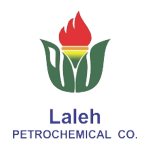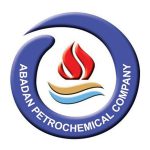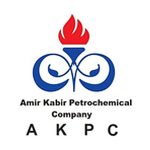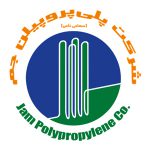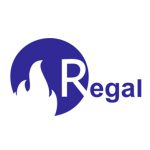Urea
Urea is a non-toxic and non-acidic substance, widely used in various industries. Industrial urea is primarily used in agriculture for the production of chemical fertilizers. However, its applications extend to the medical industry for producing skin creams, polymer and resin production, as well as its use as a reagent in chemistry laboratories.
This chemical compound has the chemical formula CH4N2O and a molecular weight of 60.056 gr/mol and is also known as carbamide. It exists in pure form as white crystals or powders at room temperature and is odorless. It melts at 132.7 degrees Celsius.
It plays a significant role in plastic production through various chemical reactions. It is used to produce urea-formaldehyde resin (UF), acting as an adhesive and binder in wood-based composite materials. This material is also a key component in the synthesis of melamine-formaldehyde resin (MF), used in the production of durable and heat-resistant melamine plastics.
For more accurate information regarding prices or purchasing the product, it is better to contact the sales department of Petro Nour Mehr Company.
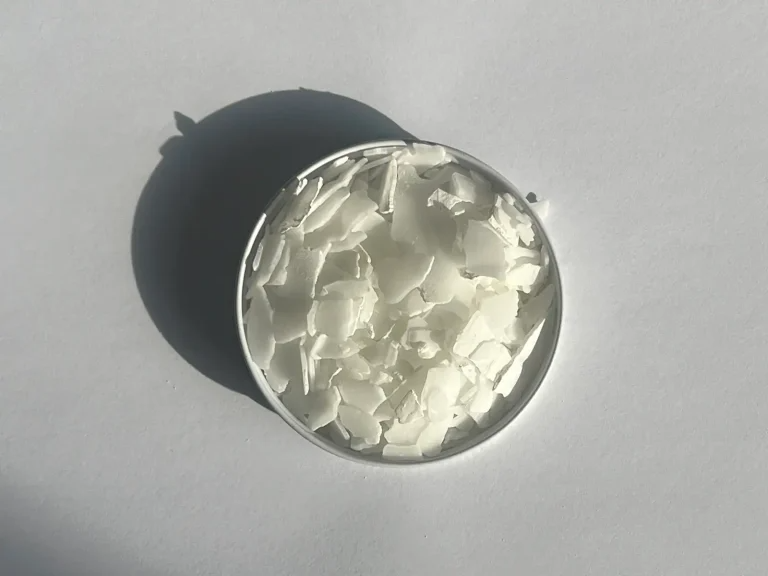
tabel
Urea Manufacturers in Iran
In the petrochemical industry of Iran, numerous companies and production units are engaged in the production of Urea. These companies include:
- Pardis Petrochemical Company
- Shiraz Petrochemical Company
- Kermanshah Petrochemical Company
- Khorasan Petrochemical Company
- Lordegan Petrochemical Company
- Razi Petrochemical Company
- Masjid Suleiman Petrochemical Company
These units are among the largest this material producers in Iran and play a significant role in supplying domestic needs and exporting this material to global markets.
Urea Manufacturers Worldwide:
The most important urea producers in the world are Yara International, Sabic, and ExxonMobil.
Applications of Urea
Urea is used in many industries and applications. Due to its favorable physical and chemical properties, this substance can be used in the following cases:
Agriculture: More than 90% of this material is produced for industrial purposes worldwide to be used as a nitrogen-releasing fertilizer. In soil, it decomposes to produce ammonium. The loss of nitrogen compounds to surface water and the atmosphere is inefficient and environmentally harmful.
 100vw, 650px” data-lazy-src=”https://petronourmehr.com/wp-content/uploads/2024/05/agriculture11.png” /></div></div><div class=)
 100vw, 650px” data-lazy-src=”https://petronourmehr.com/wp-content/uploads/2024/05/agriculture44.png” /></div></div><div class=)
Explosives: Urea nitrate, a powerful explosive material used in industry and some handmade explosive devices, can be derived from this material.
Chemical Industries: This material such as urea-formaldehyde resins, various adhesives like urea-formaldehyde, and more.
Automotive: To minimize NOx pollutants in exhaust gases resulting from combustion, such as those from power plants and diesel engines, this material is used in Selective Non-Catalytic Reduction (SNCR) and Selective Catalytic Reduction (SCR) processes.
 100vw, 768px” data-lazy-src=”https://petronourmehr.com/wp-content/uploads/2024/05/automotive11-768×421.png” /></div></div><div class=)
- Medical Use: Topical skincare products aimed at rehydrating the skin often contain urea.
- Laboratory Use: It finds extensive applications in laboratories for several purposes such as a hydrogen source along with fuel cell energy generation, a powerful protein denaturant, a stabilizing agent in fixed brain tissue, and more.
- Deicing: For deicing, this material serves as a safe and non-corrosive alternative to fertilizing agents. Its application on walkways, airport runways, landing strips, and other vital components in the aircraft subfield that must always remain corrosion-free is straightforward.
- Livestock Feed: It is used as part of animal feed as a cost-effective nitrogen source to promote growth.
- Household Products: This material can also be used as an ingredient in dishwashing soap.

- Medical Use: Topical skincare products aimed at rehydrating the skin often contain urea.

- Laboratory Use: It finds extensive applications in laboratories for several purposes such as a hydrogen source along with fuel cell energy generation, a powerful protein denaturant, a stabilizing agent in fixed brain tissue, and more.
- Deicing: For deicing, this material serves as a safe and non-corrosive alternative to fertilizing agents. Its application on walkways, airport runways, landing strips, and other vital components in the aircraft subfield that must always remain corrosion-free is straightforward.

- Livestock Feed: It is used as part of animal feed as a cost-effective nitrogen source to promote growth.
- Household Products: This material can also be used as an ingredient in dishwashing soap.
Storage Conditions for Urea
There are some guidelines for better preservation of its quality:
- It is ideal to keep these materials dry and cool; a temperature of less than 25 degrees Celsius is preferable for storage.
- Keep this material out of direct sunlight and ultraviolet light, since these sources of light may alter its chemical and physical characteristics.
- These substances react with acids and solvents, among other compounds. It is therefore recommended to stay away from direct contact with these kinds of compounds.
- During storage and transportation, ensure that this material is protected from scratches and impacts, as physical damages can lead to changes in its structure and mechanical properties.
- Packaging for this grade should be made of suitable material to protect it from environmental changes and reduce the penetration of water and air into the packaging.
- Certain items can need particular storage conditions. Consult the manufacturer’s directions in this situation.
Urea Packaging
For packaging and exporting Urea granules, various methods can be employed depending on environmental conditions, product requirements, and transportation facilitation for export. The following are some typical ways that Urea granules are packaged and exported:
- Packaging in Jambo Bags: This method is common for packaging Urea granules, where the granules are packed into large bags with varying capacities (usually between 500 to 2000 kilograms). These bags are appropriate for air, sea, and road transportation in addition to protecting the product from contamination and moisture.
- Packaging in Small Bags: In this method, urea granules are packed into smaller bags with capacities of approximately 20 to 25 kilograms.
- Use of Pallets: This material large pallets.
Choosing the right packaging and exporting strategy for this material granules can be accomplished with success if international packaging standards, labeling, and transportation requirements are followed. It’s crucial to think about protecting the product from environmental deterioration, shocks, and humidity while it’s being transported.
Physical and chemical properties
Urea possesses numerous physical and chemical properties, some of which are discussed below:
- One of the most important physical and chemical properties of this material is its odorless and white color appearance.
- This material exhibits high solubility in water and is considered a non-toxic compound.
- When dissolved in water, it does not shift the acidity or alkalinity, making it valuable in certain industries.
- It forms a porous framework with other compounds and can absorb many organic substances.
- Upon decomposition, this material produces proteins or amino acids and ammonia.
- This material is non-flammable and not combustible.
- It decomposes before reaching its boiling point.
- Due to extensive hydrogen bonding with water, this material has high solubility in this liquid.
Benefits of Urea
- This material has the highest nitrogen content (46.6%) among fertilizers. The higher nitrogen content in urea leads to easier transportation and packaging.
- The production cost of urea is relatively low.
- This material is not prone to explosion, unlike ammonium nitrate, hence there is no risk associated with storing urea.
Disadvantages of urea
- This material is highly soluble in water, requiring higher-quality packaging compared to ammonium sulfate.
- During production, hazardous pollutants are released by urea. Emissions of pollutants from industrial processes enter the atmosphere.
Types of Urea Grades
This material has various grades classified based on its physical, chemical, and application properties. Below are some of the types of grades for this substance:
- Engineering grade
- Food grade
- Fertilizer grade
These units are among the largest Urea producers in Iran and play a significant role in supplying domestic needs and exporting this material to global markets.
✅ How to Buy Our Products?
To purchase our products, follow these simple steps to ensure a smooth and secure transaction:
- Choose a Trusted Supplier: Always purchase from an authorized supplier like Bravo Polymer, which guarantees high-quality products and holds the necessary certifications.
- Compare Market Prices: Review and compare product prices in different markets to make an informed purchase decision.
- Review Sales Conditions: Pay attention to important factors like order quantity, delivery time, packaging, transportation methods, and payment terms.
- Importing Regulations: If you plan to import our products to other countries, ensure compliance with customs and legal regulations. We can assist you in understanding the required documentation and legal procedures.
- Contact Us for the Best Price: Reach out to Bravo Polymer to get the most competitive export price based on your purchase conditions.
- Place Your Order: Once the contract is signed and the price confirmed, you can place your order with us.
- Secure Payment Methods: We offer secure and flexible payment options to suit your convenience.
- Loading and Shipment: After order confirmation, we handle the loading and transportation process by coordinating with reliable shipping companies.
- Customs Documentation: We provide all necessary customs clearance documents to facilitate a smooth delivery to your destination city.
💬 Contact us today to receive a tailored quotation and start your seamless purchasing experience with Bravo Polymer.
The largest distributor of polymers in the Middle East



